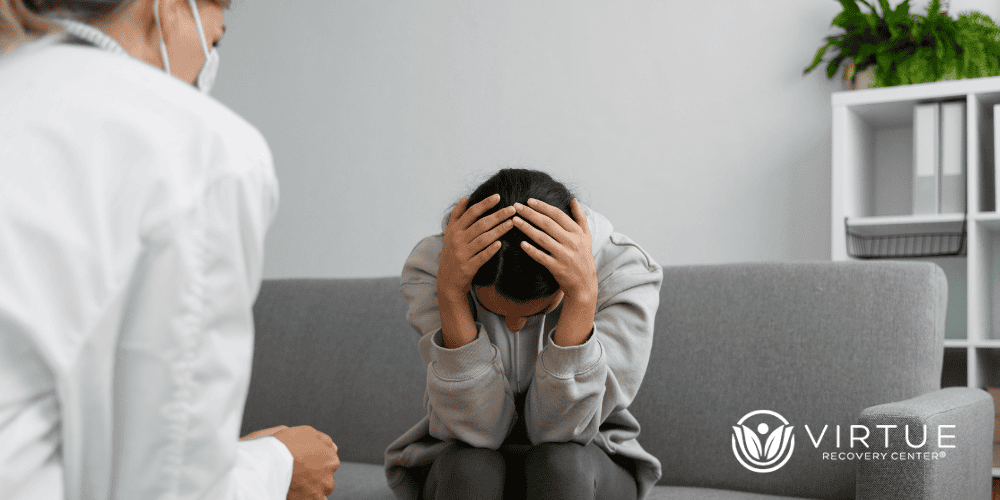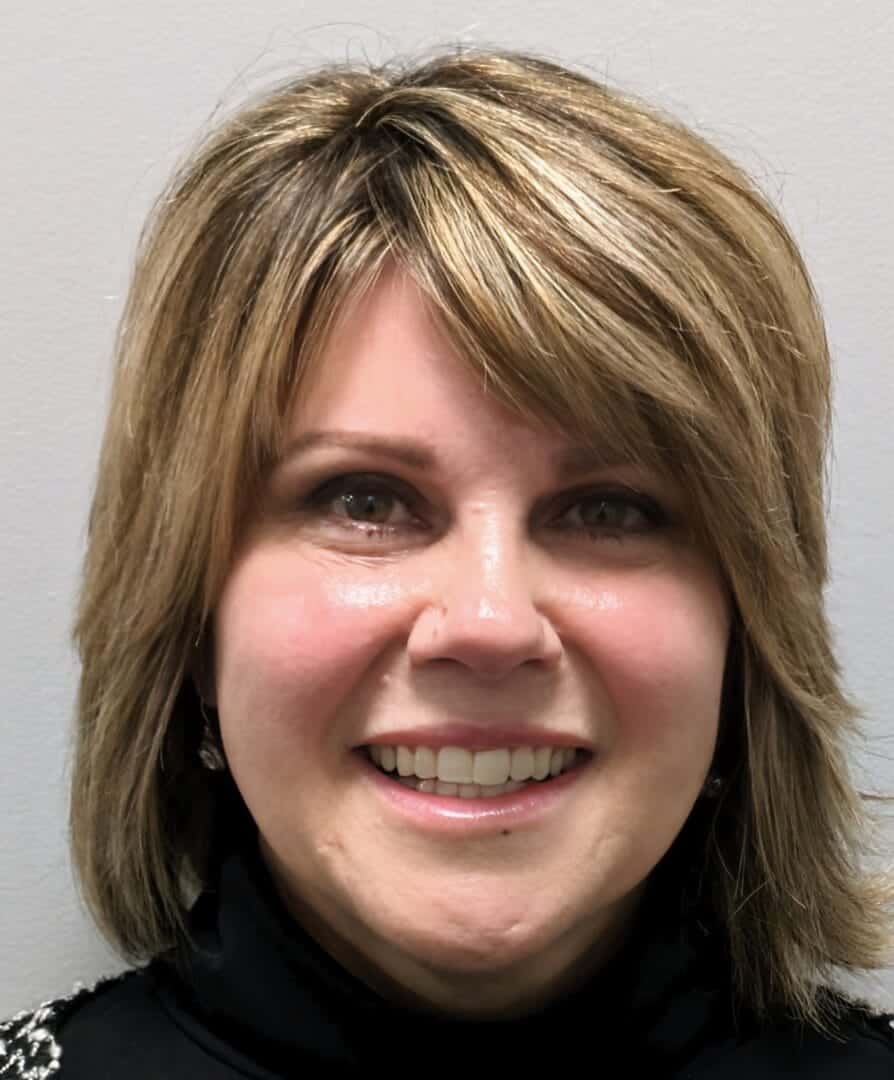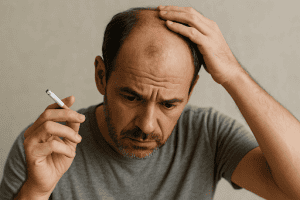Key Takeaways
- People struggling with co-occurring mental health issues and drug addiction discover that Bipolar disorder treatment in Arizona is a fundamental part of their recovery.
- Stabilization of mood symptoms decreases the risk of relapse throughout Cocaine Addiction Recovery and enhances long-term outcomes.
- The effective treatments for both conditions include cognitive-behavioral therapy, trauma therapy, and medication management.
- At treatment centers, people can heal in a safe environment, both mentally and physically.
- Early intervention and support help to build resilience, equipping people to lead healthier and more fulfilling lives.
Introduction
Bipolar disorder is a serious type of mental illness that is quite complex with its various states of mania and depression. Each of these mood states has its own challenges, but when you throw stepping-stone drug or alcohol use into the mix, things can take a heavy downturn. One of those substances, cocaine in particular, is one that people with bipolar disorder often use either when they are feeling too low to lift a finger or not high enough to explode. What is often a temporary fix, however, becomes a vicious cycle. That’s why bipolar disorder treatment in Arizona is about more than just managing symptoms; it can be a major helping hand when it comes to combating substance use disorders such as cocaine addiction. When people receive care that addresses both disorders, they are positioned to disrupt the spiral of relapse and achieve long-term recovery. With no systemized approach to handling both, people often get stuck in a cycle of bad behaviours.Why is Treating Bipolar Disorder Essential in Cocaine Addiction Recovery?
Treating bipolar disorder in concert with cocaine addiction is crucial, as they frequently become intertwined. Mania, when someone can become impulsive, gives that person the sense that they can use the cocaine and not take the hit. Conversely, depressive episodes may provoke cocaine use as a form of self-medication or an escape from emotional pain. Through guided treatment, patients develop better ways of controlling mood swings. This can include your medication, such as mood stabilizers, perhaps therapy on a regular basis, and changes in areas of your life such as getting better sleep or better nutrition. Stable mood levels lower the urge to replace with substances, which ensures that your Cocaine Addiction Recovery will be secured. And when people have more skills to manage the ups and downs of life without cocaine, the odds of long-term sobriety are greatly improved.
How Does Untreated Bipolar Disorder Impact Substance Use?
Untreated, bipolar disorder frequently results in a substance use disorder. Enter studies by the National Institute of Mental Health, which have found that those who have bipolar disorder are at greater risk than the general public for substance misuse. Partly this is her intensity of mood swings and the overwhelming emotions that come with those. Cocaine may appear to boost energy in depression or magnify euphoria in mania, but it actually destabilizes mood. Ultimately, however, it may serve to intensify the severity of mania and depression. Untreated bipolar disorder not only increases the craving for addiction but also can reduce the efficacy of addiction treatment programs, leaving recovery an uphill climb.What Role Do Integrated Treatment Programs Play?
Integrated treatment is a combined treatment approach aimed at addressing both addiction and mental health in one setting. Rather than approaching bipolar disorder and cocaine addiction individually, this treatment combines both into unified care plans. This often includes:- Medications to help balance mood and curb cravings.
- Cognitive-behavioral therapy to recognize negative thought patterns.
- Trauma therapy is a way to heal unresolved emotional pain.
- Resilience training to prevent relapse in everyday life.
How Can Trauma Therapy Support Recovery?
Very often, people with bipolar disorder and a substance use history also have trauma on their backs. Childhood Adversity, Loss, and Abuse can exacerbate both conditions, making them more difficult to treat. Trauma counselling offers a safe environment to process these events in a structured, supportive way. Trauma therapy is often woven into treatments like talk therapy and mindfulness practices, including simple breathing exercises. These approaches can help people work through difficult memories without being flooded by them. When they work through trauma, people have fewer emotional triggers that might send them back to using cocaine. This is what makes it not only recoverable but sustainable.
What Resources Are Available for Support in Arizona?
Arizona offers many resources available to individuals battling co-occurring disorders. Groups such as the Department of Veterans Affairs and the National Institute of Mental Health provide educational resources that can inform patients and family members with evidence-based education. “Resources like this educational video that discuss bipolar disorder and how it affects someone in their day-to-day life can also help people who cannot access so much clinical services but want to understand themselves a little bit better. Families can then use these resources to better support loved ones and understand how recovery unfolds, step by step.Conclusion
Addressing bipolar disorder while working toward cocaine sobriety is not optional—it is essential. Without treatment for both, recovery becomes fragile and difficult to maintain. With bipolar disorder treatment in Arizona, individuals gain the stability, clarity, and resilience needed to move forward. For those seeking compassionate support, Virtue Recovery Chandler provides integrated programs that focus on healing the whole person. Call 866-338-5779 today to begin the path toward a healthier, more stable future.How Does Cocaine Addiction Recovery Interact with Antidepressant Withdrawal Symptoms?
Cocaine addiction recovery can complicate the process of managing alcohol and antidepressant withdrawal. Both conditions can lead to heightened emotional instability and physical discomfort. Individuals transitioning from cocaine dependency while facing alcohol and antidepressant withdrawal may experience a resurgence of cravings, making professional support crucial for successful rehabilitation.
FAQs
What is the link between bipolar disorder and cocaine addiction?
The impulsivity of mania and the hopelessness of depression can both drive someone toward cocaine use. The drug offers temporary relief but ultimately worsens both conditions.Can bipolar disorder be treated while in addiction recovery?
Yes. In fact, treating both conditions together is the best way to achieve lasting success. Integrated care ensures mood stability while reducing the risk of relapse.What treatments are most effective for dual diagnosis?
A combination of medication, therapy, trauma treatment, and relapse prevention strategies is most effective. Each individual’s plan is customized based on their needs.Why is relapse common in dual diagnosis cases?
Relapse often happens when bipolar symptoms are ignored or untreated. Stabilizing mood through treatment reduces triggers that might otherwise push someone back to substance use.Where can I find support for bipolar disorder and addiction in Arizona?
Facilities like Virtue Recovery Chandler specialize in dual-diagnosis treatment, while national resources like NIMH and the VA provide educational support. Both professional and family support systems play a vital role.Resources
-
- U.S. Department of Justice. (2003). Cocaine Abuse and Its Impact on Society. Retrieved from https://www.justice.gov/archive/ndic/pubs7/7343/index.htm
-
- National Institute of Mental Health. (2023). Bipolar Disorder. Retrieved from https://www.nimh.nih.gov/health/topics/bipolar-disorder
-
- U.S. Department of Veterans Affairs. (2022). VA/DoD Clinical Practice Guideline for the Management of Bipolar Disorder. Retrieved from https://www.healthquality.va.gov/guidelines/mh/bd/








